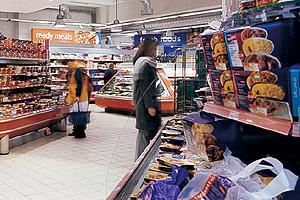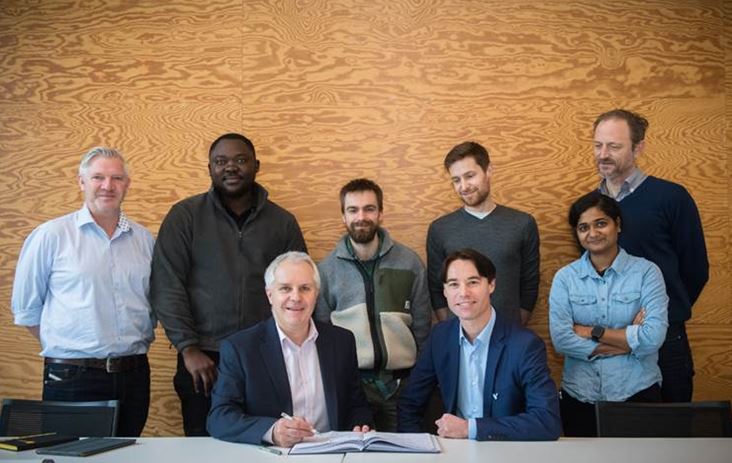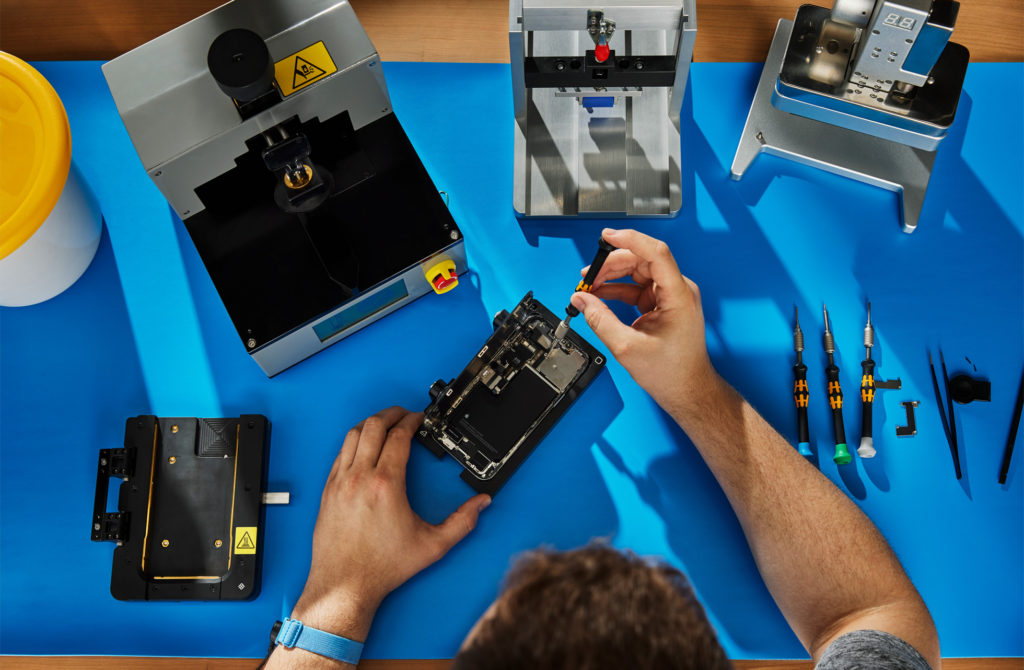The UK grocery sector has successfully halted packaging waste growth and exceeded its ambition for food waste reduction over the last five years under the Courtauld Commitment, WRAP announced today (September 23).
However, the government-funded body also revealed that signatories to the voluntary agreement had failed to reduce the total amount of packaging waste over the same period, due to an increase in grocery sales.
Collectively, the signatories – which originally numbered 13 reatilers but now include 39 retailers, brands and manufacturers – achieved the commitment's goal of reducing food waste by 155,000 tonnes per year by 2010, having already met its goal of halting packaging waste growth in 2008 (see letsrecycle.com story). WRAP claimed that value of these achievements is estimated at £1.8 billion.
Dr Liz Goodwin, chief executive of WRAP, said: “We're especially pleased with the food waste reduction which is way beyond target. It shows how a collaborative approach between the grocery sector, consumers and local authorities can work to reduce waste and save people money.”
“This is good progress particularly against the backdrop of an unexpected increase in grocery sales. Bringing together major players, including all the big supermarkets, and drawing on our combined expertise, is really helping householders put less packaging and food waste in their bins,” she added.
Packaging
Despite these successes, total packaging remained at a consistent level between 2006 and 2009 at 2.9 million tonnes. WRAP cited the 6.4% growth in grocery sales over this period as the main driver for this, as well as participating retailers acquiring a larger market share for beer and wine.
This did, however, occur alongside an average 4% reduction in the weight of packaging purchased by consumers – which was achieved through concentrated detergents or light weighted cans.
Dr Goodwin said that there was no room for complacency with the targets and urged the signatories to bear in mind these achievements when tackling the Courtauld Commitment's second phase.
She said: “What we do next – WRAP, the grocery sector and local authorities – is important. The next phase of the Courtauld Commitment looks more at the food and packaging waste from manufacture to how they're used in households. It's not enough to just focus on packaging and weight – the wider carbon impact also counts – and that's what we will be doing.”
Response
Packaging conference
Packaging issues, including attempts to reduce packaging waste, will be discussed at a one-day conference being held in central London on September 30. For more information on 'Fresh Horizons for Packaging Waste', click here.
The successes of the first phase were welcomed by environment minister Lord Henley, who said: “The results of the first phase of the Courtauld Commitment show real progress on reducing food and packaging waste, and demonstrate how effectively governments and businesses can work together through responsibility deals.”
These sentiments were echoed by Welsh environment minister Jane Davidson, who commended retailers and manufacturers on their performance, and Northern Irish environment minister Edwin Poots, who labelled the figures “a step in the right direction”.
Scottish environment secretary Richard Lochhead labelled the initiative a “clear success” and claimed it had led to a “revolution in the nation's shopping baskets”.
“Spectacular”
The achievements of the first phase of the Courtauld Commitment were welcomed by the British Retail Consortium (BRC), with particular praise given to the efforts to cut food waste arisings.
Stephen Robertson, the director general of the BRC, said: “This is a spectacular achievement.
Preventing waste is the holy grail of the drive for a zero-waste economy. Recycling is good. It produces environmental benefits but dramatically more resources are saved by not producing that material in the first place.
“The huge fall in food waste is the best news and a tribute to retailers' work with customers, supported by WRAP and local authority initiatives. With food production generating significant emissions – much more than packaging – cutting the amount of food wasted means big environmental and financial gains for us all.”
However, councillor Gary Porter, chair of the Local Government Association's environment board, claimed that there were still areas of concern and more work to be done by the signatories of the Courtauld Commitment.
He said: “These figures show supermarkets still have a lot further to go in cutting down on the amount of packaging they and their suppliers generate. Total packaging waste volumes have actually not fallen in the last five years and local authorities, on behalf of their residents, are still having to deal with a vast mountain of packaging that ends up in the waste stream.
“It's also a shame that these figures fail to tell us how individual companies are doing compared to each other so we can reflect that in the choices we make as consumers.”












Subscribe for free